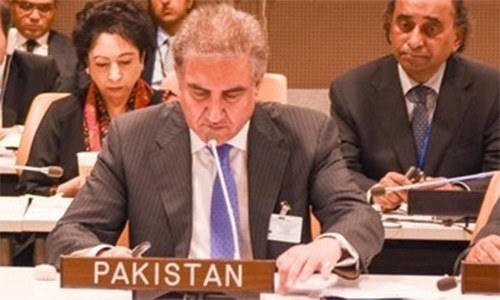IT is unfair to draw lessons from the fate of a bankrupt Egypt in the 19th century and relate it to today’s economically vibrant Gulf states. Nevertheless one can detect a beep on the radar. In 1875, Britain purchased Khedive Ismail’s shares of the Suez Canal Company to become the majority shareholder — it already had its own shares.
The khedive’s reckless modernisation drive had made Egypt go broke. The loans he had secured from European powers, especially Britain and France, enabled the two, especially the former, to interfere in Egypt’s internal matters and tighten their economic stranglehold. The number of Europeans working in Egypt had gone up phenomenally. They were ubiquitous and were resented by Egyptians, especially army officers.
In 1880, there was a row between an Egyptian donkey cart boy and a European, and this led to a riot which killed a large number of people, including Europeans. While France was reluctant to act for reasons which do not concern us here, Britain used the opportunity to occupy Egypt. Thus, the Arab world’s most important country was to remain under British control till 1952 when Gamal Abdel Nasser and Mohammad Neguib overthrew the Albanian dynasty. The reader need not be told the moral of the story: the economic control of a country by a foreign power invariably leads to the former’s enslavement.
Against this background, Pakistan must carefully watch the economic and geopolitical developments in Gulf sheikhdoms and be alert to overt and covert moves that may in the long run affect its security. The people of Pakistan have still not recovered from the shock received from some Arab countries’ reaction to India’s annexation of occupied Kashmir. Saudi Arabia was neutral, but the UAE felt no qualms about calling the Aug 5 annexation decree India’s ‘internal matter’.
It is doubtful if Gulf nations are aware of India’s naval ambitions.
Various interpretations have since then been given about why Khalifa bin Zayed al Nahyan’s government behaved the way it did. One explanation is obvious: trade between the Emirates and India is estimated at $100bn. To this must be added the crucial role Indian expatriates have played and will continue to do so in building the UAE economy and the extraordinary control they have come to exercise over business and finance in the sheikhdom.
The number of Indian nationals — nearly two million — constitutes 27pc of the Emirates’ population of 9.4m. Taken together, all Gulf states have an Indian population of 9m, and let’s be clear that in a given geopolitical turmoil this population could be an extraordinary asset to India to help New Delhi advance its interests.
K.M. Panikkar’s India and the Indian Ocean is a much-quoted book, for it gives a clear indication of what Indian strategists think of their country’s role in relation to Asia and the Middle East. The gist of the thesis is that India must step into British shoes and play the role Britain did in the geographical mass between Aden and Singapore. He argued that the Indian Ocean must “truly remain Indian”.
No wonder the ‘Persian Gulf’ finds repeated mention in the post-Panikkar era. Indian Prime Minister Atal Behari Vajpayee told a military conference in 2003 that India’s “strategic frontiers” had grown beyond South Asia and that India’s “security environment ranges from the Persian Gulf to Straits of Malacca”. Similarly, former Indian navy chief Arun Prakash said India’s “strategic relevance” ranges “from the Persian Gulf to the Strait of Malacca.”
It is doubtful if the Gulf nations are aware of India’s naval ambitions. For reasons of history and geography Arab nations (and Iran) look west and seldom bother about developments in the east. In their worldview, the Pakistan-India relationship is a minor issue — a nuisance — and does not deserve the attention we think it must. Twice this year, the UAE has stunned us. In February, it invited an Indian foreign minister to a conference of Islamic foreign ministers, and it termed the Aug 5 villainy India’s internal matter.
Read: Islamabad apprises OIC of reservation over invite to India
The Asian Arab world has virtually no navy, even though 80pc of oil shipping passes through the Gulf of Hormuz. Pakistan has a vital interest in this crucial sea lane, and it is exactly for this reason that Gwadar port is an eyesore for many governments hostile to Pakistan.
The situation calls for Pakistan’s greater collaboration with Gulf navies in a manner that pre-empts any attempt by non-Gulf powers to penetrate what undoubtedly is Pakistan’s underbelly. Let Islamabad keep its eyes and ears open so as not get caught again by surprise. Bases are not begged for; bases are extorted or imposed. The host country has no choice but to follow the diktat of the economic hegemon. It is a pity that it is Pakistan that has to suffer because of the Arab ignorance of South Asian history.
The writer is Dawn Readers’ Editor and author.
Published in Dawn, December 10th, 2019













































